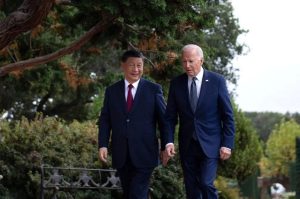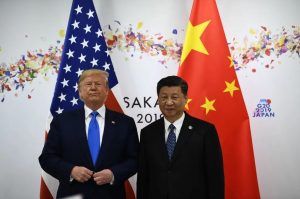In an unforgivably cringeworthy mea culpa delivered in surprisingly fluent Mandarin, John Cena has apologized to his fans in China. He had said in a promotional interview with a Taiwanese media outlet that Taiwan would be ‘the first country that can watch’ his new Fast & Furious movie, F9. Uh oh.
To the Chinese Communist party and a billion Chinese citizens, the slightest hint of Taiwan’s sovereignty is considered blasphemy in the highest order.
‘I made a mistake,’ the former WWE champion said in a groveling video posted to the Chinese social media platform, Weibo. ‘Now I have to say one thing which is very, very, very important: I love and respect China and Chinese people.’
He continued: ‘I’m very sorry for my mistakes. Sorry. Sorry. I’m really sorry. You have to understand that I love and respect China and Chinese people.’
This is yet another instance of a high-profile capitulation to the Chinese Communist party line on Taiwan. Taiwan, the Republic of China, views itself as a democratic, independent state but China disputes its sovereignty claims, vowing eventually to regain control and reunify it under the banner of the CCP, by force if necessary.
China has tried to force companies, international organizations and governments around the world to comply to its view on Taiwan, Hong Kong and Macau. Airlines, hotel groups and luxury fashion labels have all bent the knee.
The world really began paying attention to the influence China holds over international corporations when the NBA, a league known for promoting progressive values, was forced to stay silent and run cover over the explicitly un-woke policies of the Chinese Communist party in order to keep its most lucrative market flowing.
This isn’t just a matter of ideology but of life and death. Beijing’s success in blocking Taiwan’s official participation in the World Health Organization prevented a quicker, more effective response to the COVID-19 pandemic by suppressing information early on that could have saved millions of lives.
Nowhere is the kow-towing to Chinese demands more obvious than in Hollywood. Scripts, characters and imagery that offend Chinese sensibilities are rewritten or removed. In the movie version of the Marvel comic Doctor Strange, the Tibetan monk was replaced with a Celtic monk as the mystical ‘Ancient One’.
When China demanded the erasure of the ‘Taiwan’ patches on the flight suit worn by pilots in the Top Gun sequel, the studio acquiesced. All of this comes as Hollywood’s box office ticket sales continue to slow in the US while China has become the world’s largest cinema market, its 2021 box office numbers reaching $3 billion in a few months, significantly more than the US made for all of 2020.
So can we really blame John Cena for submitting to China, offering sincere apologies and declaring his undying love for a totalitarian state, when the Chinese market alone for Universal’s F9 accounted for $136 million out of $163 million, or a whopping 83.4 percent of the international box office sales?
There was a time, long ago, when old school Hollywood hippies used to care about Tibet. That feels a long way away. Few remember that Disney produced a film, Kundun, about the early life of the Dalai Lama, directed by the legendary Martin Scorsese. As Disney began courting the Chinese market in the early 1990s and eyed a new theme park in Shanghai, the company buried the film to appease the CCP. The then-CEO Michael Eisner even traveled to China to apologize to the premier.
Today, Chinese firms have increased their economic leverage over Hollywood and feel bold enough to clamp down on artistic expression and free speech. They exploit technological opportunities to strengthen China’s domestic film industry. Was the Faustian bargain worth it?
In the wake of the pandemic — and the burgeoning global impression that the CCP is an irresponsible actor and increasingly belligerent regime — American public opinion on China has dramatically shifted. Pew Research found in March 2021 that almost 90 percent consider China a competitor or enemy rather than a partner, while 48 percent think limiting China’s power and influence should be a top foreign policy priority for the US. American industry can and should no longer turn a blind eye to the reputational costs associated with appeasing an oppressive foreign regime, even if it means risking the loss of billions of dollars in revenue.





















